Ministry Of Defence

Why is space important?
The UK has been operating in space routinely since 1969 and continuously since 1988. Daily lives around the world rely on satellites and systems in space, and they also underpin military operations across the sea, land, air, and cyber domains. Disruption to the space domain could lead to significant consequences for civilian, commercial, and economic activity, as well as the armed forces ability to undertake many defence tasks.
Space is a harsh and increasingly competitive domain, including an increasing range of threats and hazards. Responsible actors in the space domain also face nefarious activity, as hostile actors and competitors seek to maximise their relative advantage in the domain. UK Space Commands mission is to protect and defend UK and allied interests in, from, and to space.
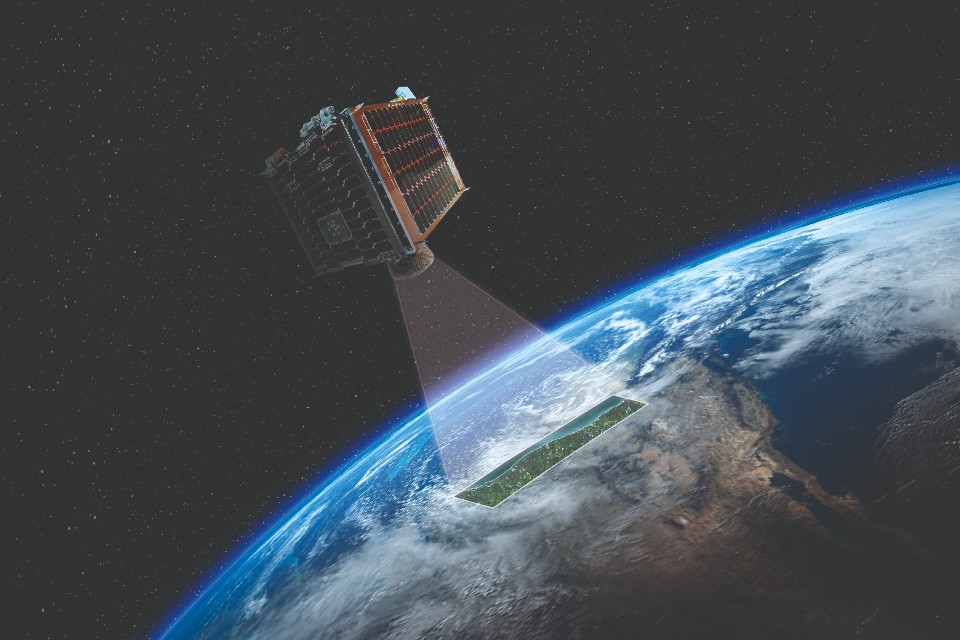
Related content
- Space Domain Awareness - Requirements
- UK Space Power (JDP 0-40)
- Space Capability Management Plan
- National Risk Register(see Severe Space Weather)
- National Security Strategy
- National Space Security Policy
- Commander of UK Space Command visits RAF Fylingdales
- Commander US Space Command holds first visit to UK Space Command
- UK Space Command officially launched
- UK Space Command marks one-year anniversary
- UK and Republic of Korea set out desire to cooperate in space
- UK and Japan sign arrangement to cooperate in space
- New telescope to provide UK with crucial space awareness
UK Space Command
UK Space Command is the defence lead for space operations, space workforce, and space capability. Its a joint command, based at RAF High Wycombe, and staffed by personnel from the Royal Navy, British Army, and Royal Air Force, alongside civil servants and contractors.
UK Space Command brings together three functions under a single two-star military commander: Delivering day-to-day space operations, growing and training defences space workforce, and developing and delivering space equipment programmes.
UK Space Command has close links to Strategic Command and Dstl, specifically in capability growth and capitalising on the rich pedigree of research and development expertise that exists within UK Defence. UK Space Command also works with the UK Space Agency to deliver joint national space capability, as part of the National Space Strategy.
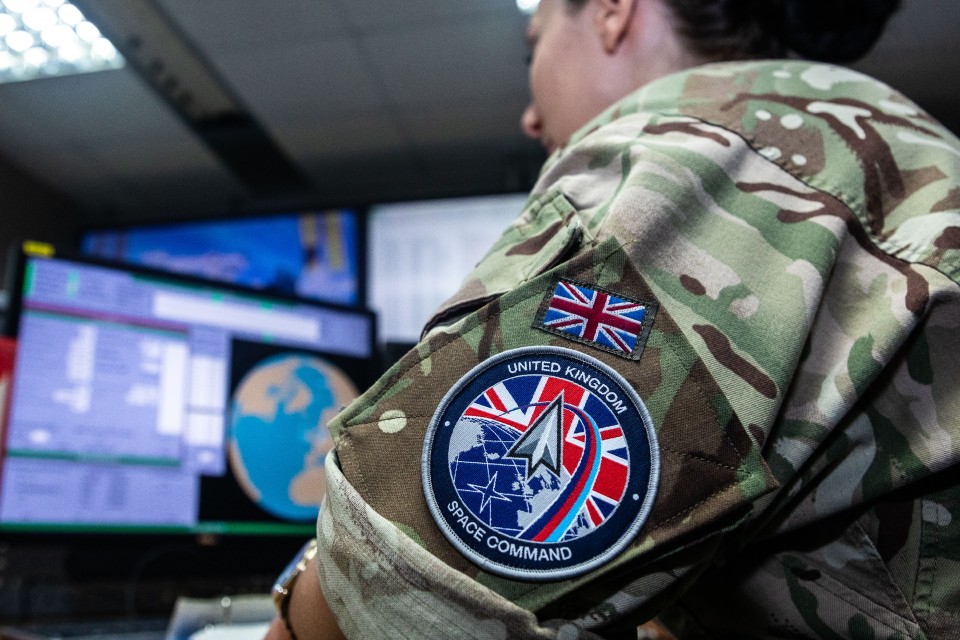
National Space Operations Centre
UK Space Command leads the National Space Operations Centre (NSpOC), alongside the UK Space Agency, and in partnership with the Met Office.
Space domain awareness the ability to understand and respond to what is happening in space underpins all space activities and is a critical requirement for delivering a wide range of UK civil and military space objectives.
The NSpOC combines and coordinates civil and military space domain awareness capabilities to enable UK space operations and protect UK interests from space related threats, risks, and hazards. The NSpOC has a combined annual budget of over 20 million and approximately 70 civilian and military personnel, with the military element delivered by No 1 Space Operations Squadron.
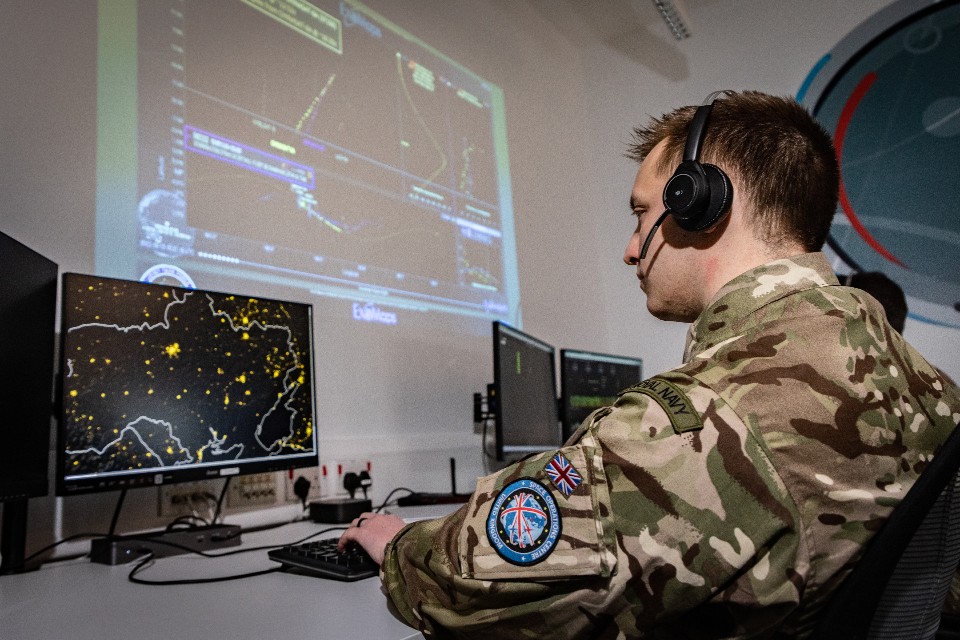
RAF Fylingdales
RAF Fylingdales, in North Yorkshire, is the UKs primary military space sensor. It provides a 24/7 missile warning and space surveillance capability for the UK and its allies.
RAF Fylingdales is a joint enterprise between the United States and the United Kingdom. It was first declared operational in September 1963. Today, it is the only three-faced radar, providing 360coverage, within the US-led Space Surveillance Network. Its radar can detect objects the size of a drinks can up to 3,000 miles into space.
RAF Fylingdales operational activity is delivered by No 2 Space Warning Squadron. Since its foundation in 1963, RAF Fylingdales has been enabled by a whole force team of military and civilian personnel. Over 300 people work at RAF Fylingdales, including military personnel, civilian staff and contractors, Ministry of Defence Police, and fire service.
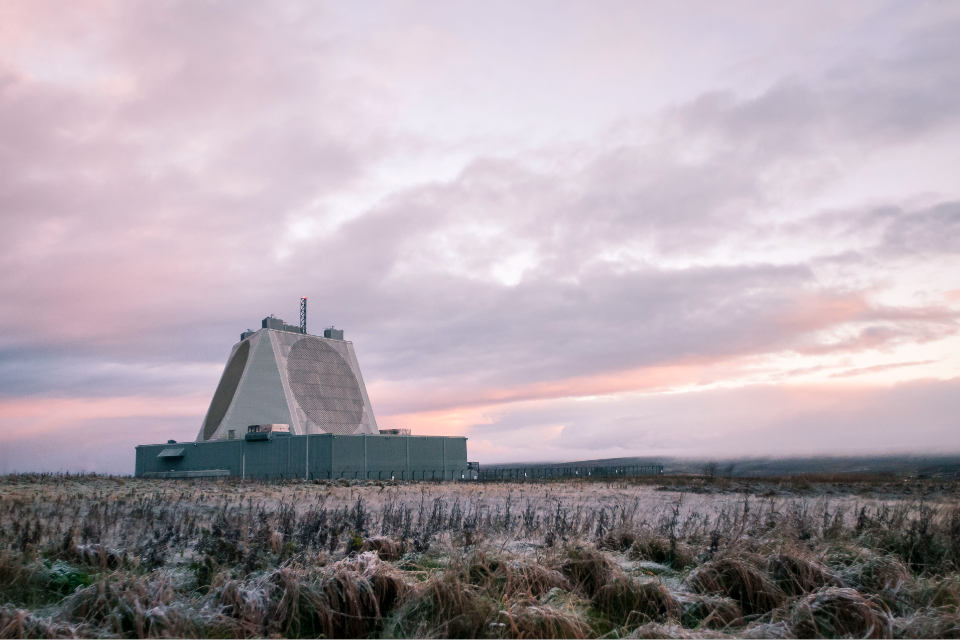
SKYNET
SKYNET is the MODs satellite communications (SATCOM) capability. Its a family of military communications satellites which provide strategic communication services to the UK armed forces and its allies. SKYNET 5 is the most recent generation of these UK military satellites.
The SKYNET 6 Programmeis exploiting technological advances to deliver the nextgeneration of SATCOM to the MOD using new space assets and a way to monitor and control them. These assets will be supported by additional commercial services to provide a reliable and robust communications service.
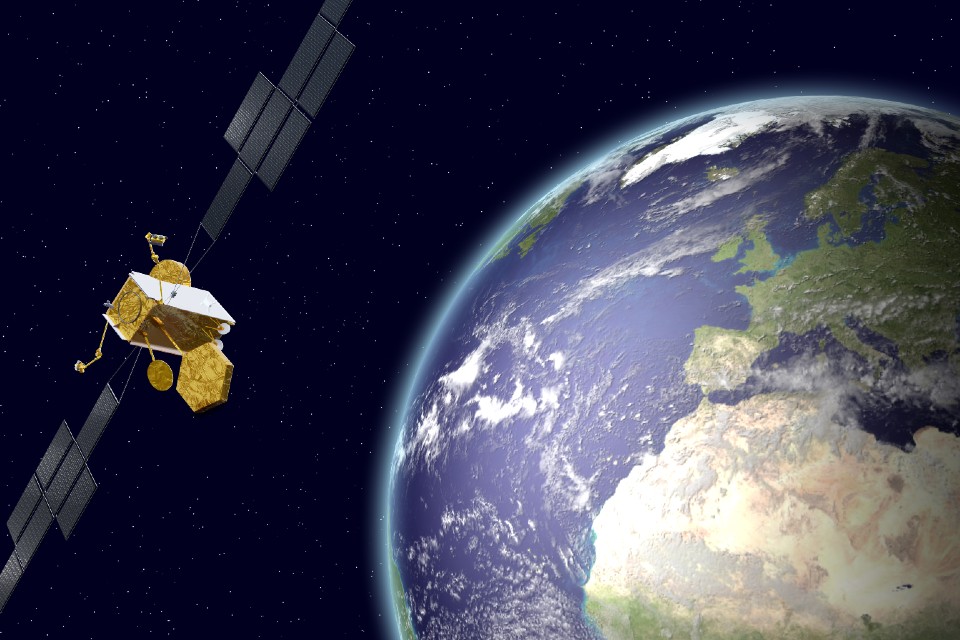
International collaboration
Collaboration with international partners is key in space. UK Space Command works closely with the UKs partner nations in the Combined Space Operations Initiative, Five Eyes, NATO, and other bilateral relationships.
The Command also contributes to the US-led space coalition under Operation Olympic Defender, including operational level space command and control, missile warning, and increased space domain awareness.
Commander of UK Space Command
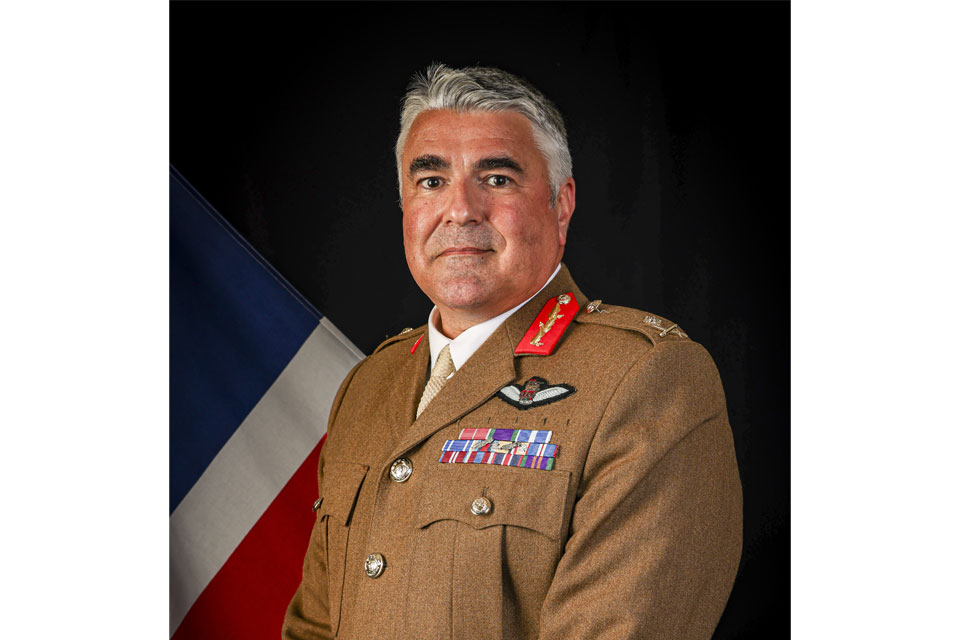
The Commander of UK Space Command is Major General Paul Tedman.
Major General Tedman took over UK Space Command in May 2024. Prior to this appointment, he spent two years at US Space Command in the role of Deputy Director for Strategy, Plans, and Policy.
Major General Tedman was commissioned into the Army Air Corps in 1997 and was awarded his Army pilots wings in 1999. Since then, he has held command positions from troop up to brigade in both the UK and the US, and has deployed on operations in the Balkans, Africa, Afghanistan, and Iraq.
Updates to this page
Last updated 16 July 2024 We don't have any comments for this article yet. Why not join in and start a discussion.
